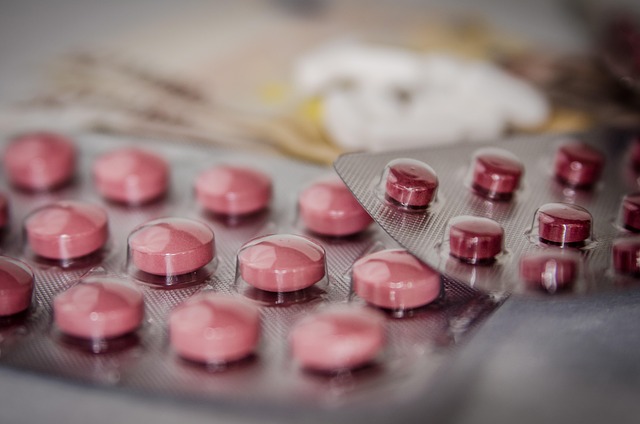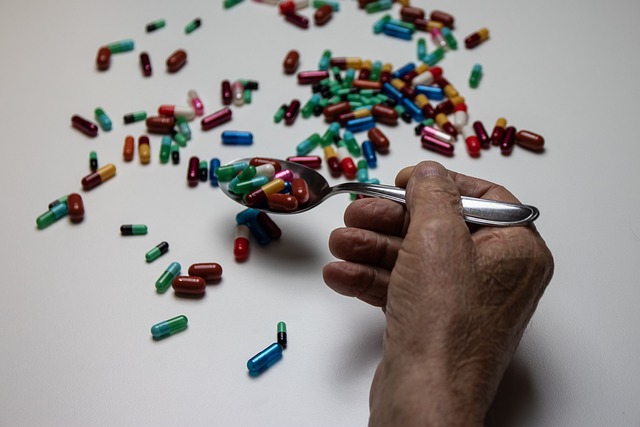Depression treatment programs address a severe mental health disorder with persistent despair and physical symptoms. Core components include psychotherapy (CBT, IPT), medication (SSRIs, SNRIs, TCAs), lifestyle changes (exercise, diet, sleep), support groups, alternative therapies, and building resilience through coping skills and well-being activities to prevent relapse.
Clinical depression is a serious yet treatable condition affecting millions. Understanding depression’s symptoms and seeking proper diagnosis is paramount for effective management. This comprehensive guide explores various treatment options, including psychotherapy, medication, lifestyle adjustments, support groups, alternative therapies, and resilience-building strategies. Discover how tailored depression treatment programs can empower individuals to overcome their mental health challenges and reclaim their lives.
Understanding Depression: Symptoms and Diagnosis

Depression is a common yet serious mental health condition that significantly impacts an individual’s daily life and well-being. It’s more than just feeling sad or unhappy; it’s characterized by persistent feelings of despair, loss of interest in activities once enjoyed, and a range of physical and cognitive symptoms. Understanding depression involves recognizing its various symptoms, which can include changes in appetite, sleep disturbances, fatigue, difficulty concentrating, and thoughts of worthlessness or guilt.
Diagnosis typically involves a comprehensive evaluation by a qualified healthcare professional. This may include detailed discussions about symptoms, medical history, and mental health assessments to rule out other conditions. Depression treatment programs often begin with therapy, such as cognitive-behavioral therapy (CBT), which helps individuals identify and change negative thought patterns and behaviors contributing to their depression. Medication, like selective serotonin reuptake inhibitors (SSRIs), may also be prescribed to manage symptoms and improve overall mental health.
Psychotherapy Options for Effective Treatment

Psychotherapy, or talk therapy, forms a cornerstone in the arsenal of depression treatment programs. It offers individuals a safe space to explore and understand their emotions, thoughts, and behaviors, which are often interconnected with depressive episodes. Several evidence-based psychotherapy options have proven effective in managing clinical depression. Cognitive Behavioral Therapy (CBT), for instance, focuses on identifying and changing negative thought patterns and behaviors that contribute to depression. By learning new coping strategies and challenging distorted beliefs, individuals can gain a more positive outlook on life.
Another powerful approach is Interpersonal Psychotherapy (IPT), which addresses relationship issues and social factors that might be exacerbating symptoms of depression. IPT helps patients improve communication skills, resolve conflicts, and build stronger support networks, all of which can significantly enhance their overall well-being. These psychotherapy options, when combined with medication or on their own, offer comprehensive depression treatment programs tailored to each individual’s unique needs, fostering a path towards lasting recovery and improved quality of life.
Medication: Antidepressants and Their Roles

Antidepressants play a pivotal role in clinical depression treatment, offering a pharmacological approach to managing symptoms and restoring balance. These medications are designed to target specific neurotransmitters in the brain, like serotonin, norepinephrine, and dopamine, which are often imbalanced in individuals experiencing depression. By increasing the availability of these neurotransmitters, antidepressants can help lift mood, reduce anxiety, and improve overall well-being.
Different types of antidepressants, such as selective serotonine reuptake inhibitors (SSRIs), serotonin-norepinephrine reuptake inhibitors (SNRIs), and tricyclic antidepressants (TCAs), work in varied ways but all aim to alleviate depressive symptoms. The choice of medication is often tailored to the individual’s specific needs, considering factors like age, medical history, and the severity of depression. Effectiveness may vary from person to person, and it’s not uncommon for individuals to try multiple medications or combine them with other depression treatment programs for optimal results.
Lifestyle Changes for Improved Mental Health

Making positive lifestyle changes can significantly impact and improve symptoms of clinical depression. Engaging in regular physical activity, maintaining a balanced diet, and prioritizing quality sleep are essential components of a holistic approach to depression treatment programs. These simple yet powerful adjustments can boost mood, increase energy levels, and enhance overall well-being. For instance, incorporating even moderate aerobic exercise into daily routines has been shown to reduce symptoms of depression effectively.
Additionally, cultivating healthy habits like mindful meditation, keeping a gratitude journal, or spending time in nature can help individuals develop coping strategies and build resilience against depressive episodes. These lifestyle interventions work hand-in-hand with professional support, offering individuals tools to manage their mental health more independently while also complementing evidence-based depression treatment programs.
Support Groups and Peer Connection

Support groups play a crucial role in depression treatment programs, offering individuals a safe space to connect with peers facing similar challenges. These groups facilitate open dialogue, foster understanding, and provide emotional support, all essential elements for effective healing. Members can share their experiences, gain different perspectives, and learn coping strategies from one another, enhancing their overall well-being.
Peer connections within these groups offer a unique advantage. Individuals often feel less isolated when surrounded by people who genuinely understand what they’re going through. This sense of belonging and camaraderie can significantly contribute to the success of depression treatment programs, encouraging continued participation and fostering a supportive environment conducive to recovery.
Alternative Therapies: Light, Sound, and More

Alternative therapies are gaining recognition as effective tools within depression treatment programs, offering unique approaches to combat clinical depression. Light therapy, for instance, has shown promise in treating Seasonal Affective Disorder (SAD), a type of depression related to changes in seasons. This involves exposure to bright artificial light, mimicking natural outdoor light, which can regulate brain chemicals linked to mood.
Sound therapy is another emerging technique that utilizes specific sounds and music to influence brain activity. Studies suggest that listening to certain types of sound waves or music can have a calming effect, reduce stress, and improve overall well-being. Combining these alternative therapies with traditional treatments like medication and psychotherapy can provide comprehensive depression treatment programs tailored to individual needs.
Building Resilience: Long-Term Management Strategies

Building resilience is a key component in long-term management strategies for clinical depression. Depression treatment programs that focus on fostering resilience equip individuals with coping mechanisms and problem-solving skills to navigate life’s challenges. This involves therapy sessions, such as cognitive-behavioral therapy (CBT), which helps identify and change negative thought patterns. By learning to challenge these thoughts and develop healthier perspectives, individuals can better manage symptoms and maintain their mental health over time.
Additionally, engaging in activities that promote well-being, like regular exercise, mindfulness practices, and maintaining strong social connections, plays a significant role in building resilience. These strategies not only provide immediate relief from depressive episodes but also strengthen an individual’s ability to withstand future setbacks, making them more adept at managing their depression effectively and preventing relapse.
